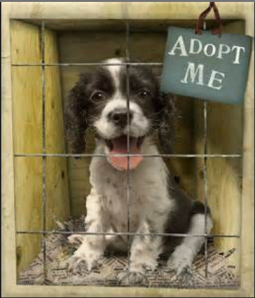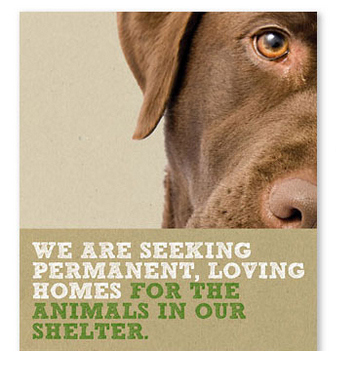A Cautionary Tale: When Caution Impedes the Mission
One night last year, my friend, Bobbie was sitting on her porch with her little Shih Tzu, Rosie. They were sitting quietly, enjoying the mild night when the neighbor’s dog came over. The much larger, stronger dog attacked Rosie. Bobbie shouted and struck at the attacking dog, and got his attention just long enough for Rosie to run off. Once the neighbor had his dog back under control, Bobbie enlisted the help of friends and went out looking for Rosie. They looked and called for her all around the neighborhood well into the early hours of the morning, but couldn’t find her. Dejected, Bobbie went home. After sunrise, Bobbie went out looking again, and found Rosie sitting on the back steps. Apparently, she had been so frightened by the attack that she had run off and hunkered down until daylight. Bobbie brought her in and Rosie drank some water and went to sleep. But she never woke up. She had suffered internal injuries in the attack, and although she looked all right, and was acting normal, she bled out in her sleep. Bobbie was devastated.

In rescue and advocacy, our message is “Adopt, Don’t Shop”.
It took months before Bobbie felt emotionally ready to get another dog. When she started talking about the type she wanted, I made all the usual noises that animal advocates make: “Don’t buy from a pet store.” “Don’t buy from a backyard breeder.” “Rescues have all types of breeds, check the rescues in your area.” Bobbie listened, and today she has a beautiful little longhaired Chihuahua. I met him this past weekend. But he didn’t come from a rescue, and Bobbie was sure to tell me.
“I tried to adopt a dog from three different rescues and they all turned me down.”
I can say beyond a shadow of a doubt, that whichever those rescues were, they made a mistake. If any of them would’ve let Bobbie adopt one of their dogs, that dog would have been adored and very well taken care of. I asked why they had refused her, and she said that one said she couldn’t keep a dog safe, because of what had happened to Rosie. Another said that her disability would keep her from being able to run after the dog if it got loose (Bobbie has chronic pain and walks with a pronounced limp). Another said that she didn’t have a fenced in yard.
This brought back memories of when my partner and I wanted to adopt a dog from a local rescue. We’ve had dozens of animals and taken very good care of all of them. All but two have lived into the 16-20 year range. But our application was denied because when they had called our vet for a reference and asked about heartworm preventative, our vet said we didn’t buy it from them. So the rescue wanted to know where we got it. Well, we didn’t have our dogs on heartworm preventative, because they were 19 and 20 years old and we felt like the fewer chemicals they ingested at that age, the better. I assured the rescue that we would put the new dog on heartworm preventative, but the representative told me that “wouldn’t be fair to our other dogs”.
Any rescue can make up their own guidelines and requirements when adopting one of their dogs out, but more and more, I’m seeing cases where the caution they are exercising is impeding their mission. The whole point of rescue is to save a dog from death or abuse, and place the animal in a loving, permanent home. Yet too many potential adopters are discounted because the cautionary requirements of the rescue are too stringent.
Nobody, but nobody, is a perfect pet guardian. We all do the best we can do, and we all make mistakes, even those of us who work in advocacy and rescue. The search for a “perfect home” is a dubious quest at best.
How many other potential adopters have those rescues turned down? How many animals

But only if you jump through enough hoops and meet every requirement.
could have been placed — leaving openings to rescue more pets in danger? What do these experiences do to the message we spread of how important it is to “adopt, not shop” from shelters and rescues?
Bobbie got another dog. She bought him from someone whose dog had a litter. Based on her experience, I doubt she’ll ever try to adopt a rescue dog again.
In rescue and advocacy, our actions and requirements shouldn’t be at odds with our message. It would serve most rescues well to regularly evaluate whether any of their adoption requirements are keeping their animals from loving homes.




